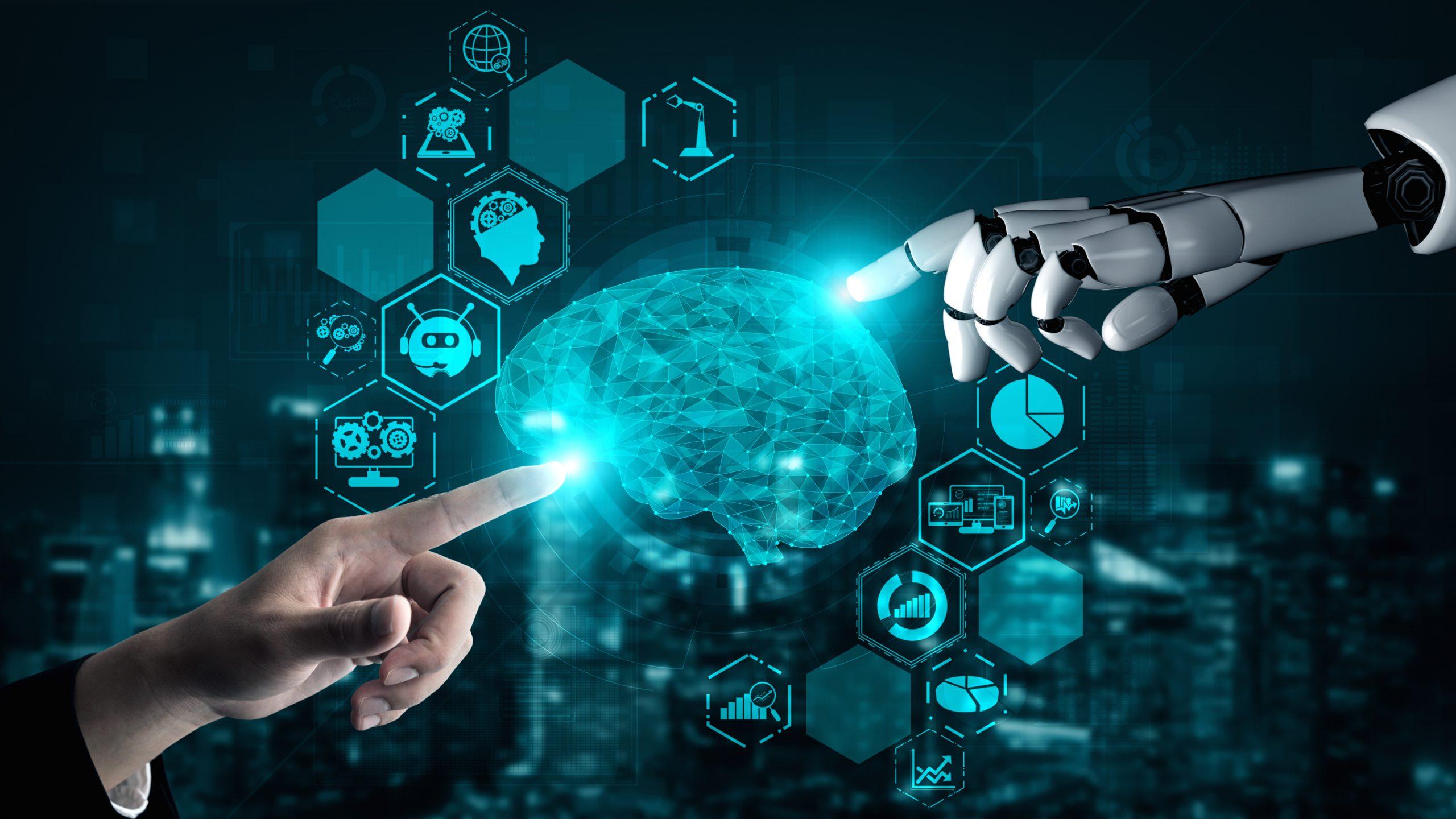In a world where the lines between humans and machines are becoming increasingly blurred, the future of work is being reshaped by the rapid advancement of artificial intelligence. As we strive to navigate this new era of automation and autonomy, it is essential to explore the ways in which AI is revolutionizing industries, redefining roles, and challenging traditional notions of employment. Join us on a journey into the realm of Artificial Intelligence and the Future of Work, where innovation meets opportunity and potential knows no bounds.
Unveiling the Impact of Artificial Intelligence on Job Landscape
In today’s rapidly evolving technological landscape, the integration of Artificial Intelligence (AI) has started to significantly impact the job market. With AI being implemented in various industries, from healthcare to finance, the future of work is undergoing a major transformation. Companies are increasingly adopting AI technologies to streamline processes, enhance productivity, and improve decision-making. However, this shift is also raising concerns about the potential displacement of jobs and the need for upskilling and reskilling the workforce.
As AI continues to advance, certain jobs are at risk of being automated, while new roles are emerging that require skills in AI development, data analysis, and machine learning. This shift in the job landscape further emphasizes the importance of lifelong learning and adaptability. Workers will need to continuously update their skills to remain relevant in the evolving job market. Additionally, businesses will need to explore ways to leverage AI to create new opportunities for growth and innovation.
The Role of AI in Shaping Future Workforce Dynamics
In today’s rapidly evolving technological landscape, Artificial Intelligence (AI) is playing an increasingly pivotal role in shaping the dynamics of the future workforce. With AI’s ability to automate tasks, analyze data at scale, and make predictions based on patterns, it is revolutionizing the way we work. This shift is not only impacting individual job roles but also transforming entire industries, creating new opportunities and challenges for businesses and workers alike.
One of the key ways AI is influencing the future of work is through the optimization of processes and workflows. By leveraging machine learning algorithms, organizations can streamline operations, enhance productivity, and drive innovation. Additionally, AI is paving the way for personalized learning experiences, enabling employees to acquire new skills and adapt to changing job demands. As AI continues to advance, it will be crucial for businesses to embrace this technology to remain competitive in an increasingly digital world.
Navigating the Intersection of Human Expertise and AI Technology
In today’s rapidly evolving workforce, the integration of artificial intelligence (AI) technology has become increasingly prevalent. As companies seek to optimize efficiency and productivity, the intersection of human expertise and AI technology has emerged as a key area of focus. This dynamic relationship between human workers and AI systems presents both challenges and opportunities, shaping the future of work in profound ways.
One of the main challenges in navigating this intersection is ensuring that human workers are equipped to adapt to the changing landscape of AI technology. As machines take on more routine tasks, employees must develop skills that complement and enhance the capabilities of AI systems. This requires a shift towards cultivating uniquely human skills such as creativity, critical thinking, and emotional intelligence. By leveraging the strengths of both human workers and AI technology, organizations can unlock new levels of innovation and create a more dynamic and collaborative work environment.
Strategies for Embracing AI in the Workplace
As businesses continue to embrace the integration of Artificial Intelligence (AI) in the workplace, it is essential to implement effective strategies to maximize its benefits. One key strategy is to invest in AI training and upskilling programs for employees. By providing opportunities for staff to learn how to work alongside AI technologies, organizations can ensure a smooth transition and enhance productivity.
Another important strategy is to prioritize data security and privacy when implementing AI solutions. Companies must establish robust cybersecurity measures to protect sensitive information from potential breaches. Additionally, fostering a culture of transparency and open communication about how AI is being used in the workplace can help alleviate any concerns or fears among employees. Embracing AI in the workplace requires a proactive approach that considers the impact on both the business and its workforce.
Insights and Conclusions
As we continue to witness the rapid advancement of artificial intelligence in the workplace, it is clear that the future of work is evolving at an unprecedented pace. From automating mundane tasks to enhancing decision-making processes, AI has the potential to revolutionize how we work and live. While there are still uncertainties and challenges that lie ahead, one thing is certain - the integration of AI into our daily lives is inevitable. As we embrace this new era of innovation and transformation, it is crucial to adapt, learn, and grow alongside the technology that is shaping our future. So, let us welcome the possibilities that AI presents and strive to create a future where man and machine can coexist harmoniously, revolutionizing the way we work and thrive in the world.
